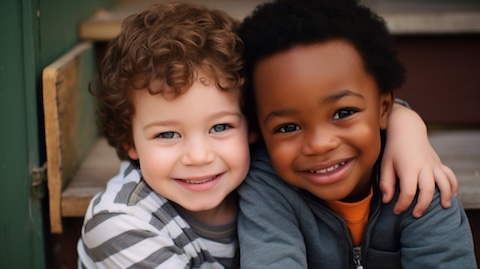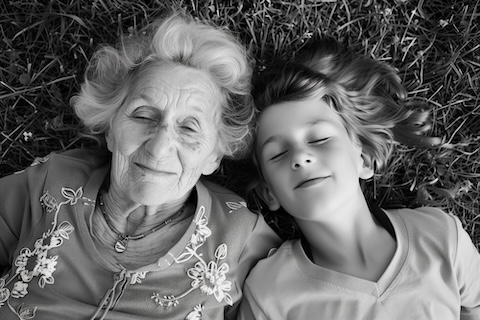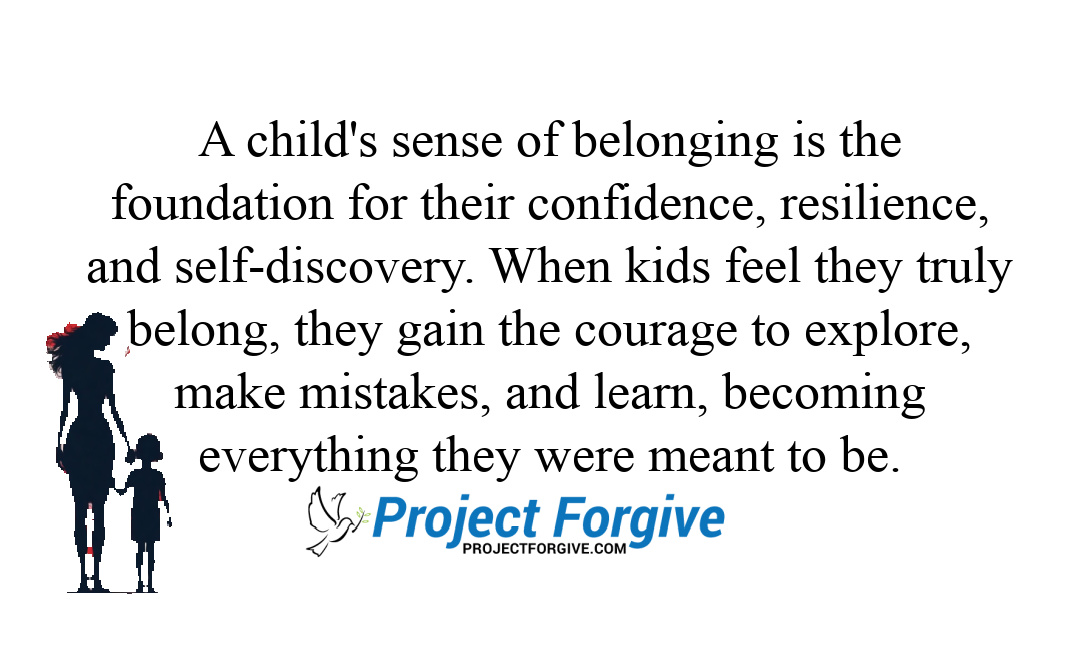Our children and grandchildren have more than physical needs; they also have psychological and emotional needs.
Of them, one of the most pressing is a sense of belonging.
Like all of us, your kids want to experience genuine human connection, feel significance within a community, relate to those around them, win the praise and support of their peers, and compare and contrast themselves with others in an effort to gain clarity on their own identities.
We want belonging for our children and grandchildren, as well as the happiness, healthiness, and motivation that often comes along with it.
At the same time, our children want belonging for themselves. We’re on the same page.
Belonging seems simple, but in fact it’s tricky, and especially tricky for one reason.

Belonging is tricky because children will look for it anywhere.
If we put them in a church, they’ll look for it in a church. If we put them on a soccer team, they’ll look for it on a soccer team.
If we don’t necessarily put them anywhere, they’ll wander around looking for it somewhere. Sometimes this wandering leads our kids to get involved with dangerous crowds, the wrong romantic partners, or unsafe situations. Our children aren’t looking for trouble.
They’re looking for belonging.
So how can we keep building and maintaining our child’s sense of belonging within the confines of safe, supportive communities?
Some of us work two jobs, are a single parent, or are responsible for multiple other children. How can we create a sense of belonging without much free time, attention, or money to spare?
Here are 3 STRATEGIES for creating a sense of belonging at home:
Decision-Making Power
Give your child some decision-making power whenever and wherever possible.
Give them the power to explore and express their identity at home in small but significant ways. For example, let them decorate their room however they’d like.
Let them play a role in how your household is decorated or organized. Let them make some of the decisions for the family – like which meals you’ll eat for the week, what you’ll do as a family this Friday night, or what you’ll get Grandma for her birthday.

Having some autonomy and decision-making power will communicate to your child that they have a voice, their opinion matters, and that they’re important to the community that is your family.
Traditions
Traditions are one of the best ways to create a sense of belonging.
Look at sports fans, for example. Take away the tailgating, the face-painting, the cheers, the chants, and the chicken wings and all of a sudden, Sunday football is kinda lonely.
Work to create some traditions with your child. Play a round of dominoes before bed. Go for long walks on weekend mornings.
Have a secret handshake. Race to see who can clean their room faster. Anything. These traditions can cost $0 and take little time or energy, but the repetition of them bonds your child to you and establishes that they belong.
Validation
Validating your child is a powerful way to strengthen your relationship and foster emotional belonging.
When you validate your child or grandchild, you acknowledge their feelings, thoughts, and experiences as legitimate and important, even if you don’t agree with them.
This act of recognition helps them feel seen and understood, which is essential for building their self-esteem and emotional resilience.
By validating their emotions, you’re teaching them that their feelings matter, and they have a safe space to express themselves.

For example, saying, “I can see why you’re upset about this,” helps them feel heard without dismissing their emotions, even when you’re helping them navigate a difficult situation.
Validation doesn’t mean agreeing with or condoning their behavior, but rather helping them process their emotions in a healthy way.
It encourages open communication and belonging, which leads to more trust between you and your child.
When children feel validated, they’re more likely to share their thoughts and feelings, giving you insight into their world.
This insight allows you to guide them with empathy and offer the right kind of support. Over time, your child learns emotional regulation, a key skill for handling challenges in life, because they know their feelings are acknowledged and respected.
Ultimately, we all want to belong. Making time for these strategies will deeply enrich your child and grandchild’s life. A beautiful way to live life, indeed.
If inspired, please share.
Related Articles:
I Owe Myself An Apology
14 Essential House Rules with Grandparents’ Wisdom for Positive Behavior


